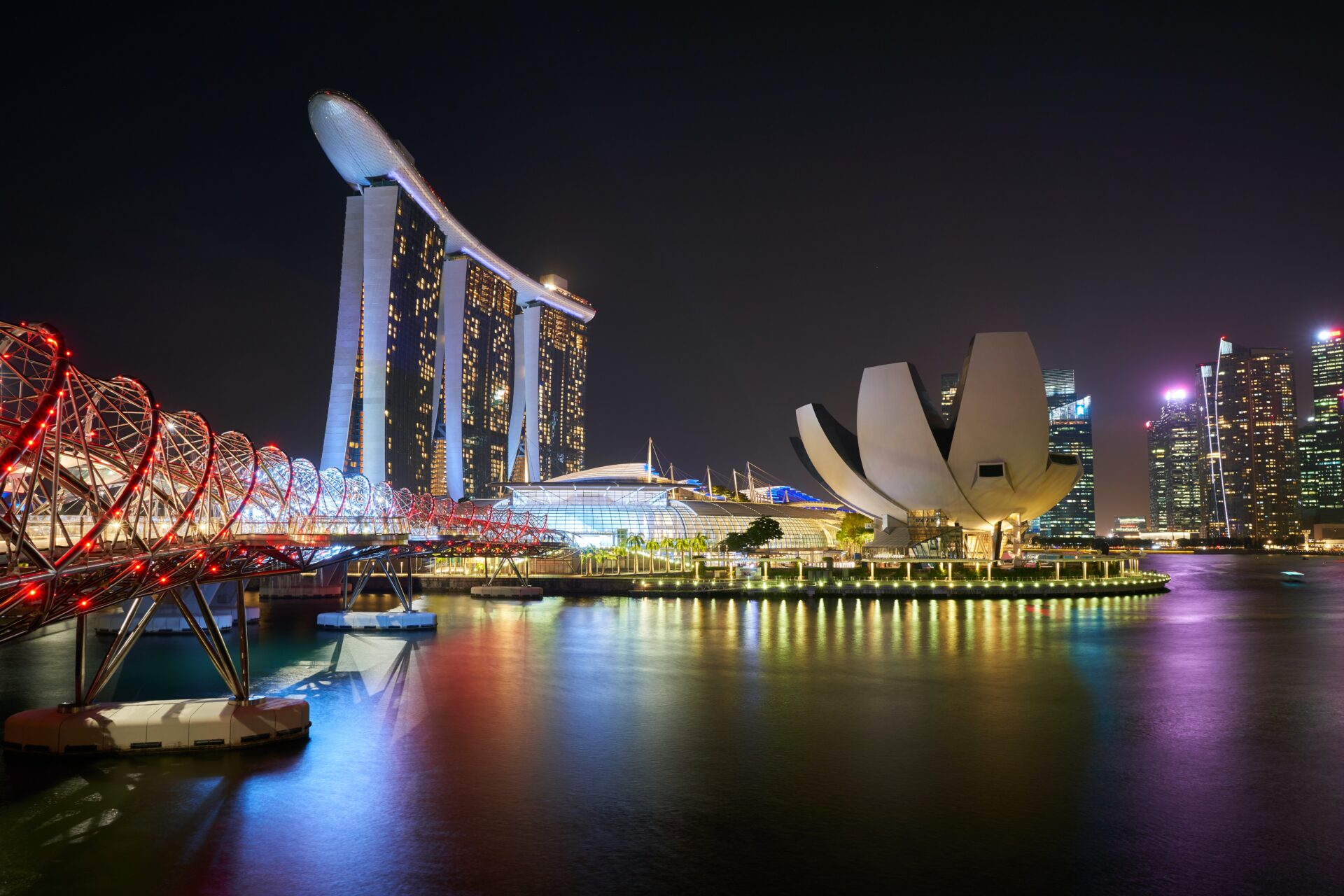Listening to this week’s parliamentary debates, you’d imagine Singapore being stuck in a Catch 22 situation.
To maintain its precious hub status, it needs to keep attracting global firms which in turn have to hire foreigners to fill positions that Singaporeans cannot fill.
In doing so, however, it also brings competition to local jobseekers while adding strain to housing, healthcare and other public infrastructure in a small city-state.
Now, we can disagree on the net impact of free-trade agreements such as the Singapore-India Comprehensive Economic Cooperation Agreement (Ceca), which has been a bone of contention for many citizens who feel they have been left out of the country’s growth.
But what’s undeniable is the reason why the country has doubled down on this hub strategy to attract investments and people inwards.
Since its founding as a modern city, Singapore has always relied on being a trusted exchange for goods, finance, people and ideas.
It began as an entrepot, where goods could change hands freely. Today, it’s a global financial capital with ambitions to be a centre for innovation as well. Its survival depends on being a hub, as citizens are repeatedly told.
And that’s not just an election slogan. If you run a small and medium business, you will know that Singapore thrives despite its small market because regional budgets are often managed from here.
So, if you run a press relations or design firm, for example, you are able to get paid for work that is meant for the region, not just Singapore’s puny market.
Even Techgoondu, despite its mostly Singaporean readership (60 to 70 per cent), caters to the region and we attract advertisers from overseas.
Now, this hub strategy faces serious headwinds in the coming years, chiefly because of the shifting digital economy.
First, a much more distributed and decentralised world is going to emerge from the disruption caused by the pandemic. It has taught businesses that executives are not needed to fly in on location, on costly expense accounts, for example.
Indeed, why is it necessary to even be physically in the same expensive city, such as Singapore, to get work done?
For all the importance of watercooler talk or the accidental “collision” of ideas along office corridors, digital and remote work are clearly the future. There’s no turning back from Zoom calls.
What does this have to do with Singapore’s hub status? Well, for one, businesses don’t have to be here in this highly expensive place.
Could someone work, say, in Kuala Lumpur and keep in the same time zone, as long as he has good broadband? Yes, the jams in Jakarta are hell, but what if an executive doesn’t have to travel to the office, much less relocate to Singapore at all?
Now, offshoring is not new. The uprooting of technology manufacturing firms in the 2000s to low-cost countries such as China, has been a painful lesson for Singapore.
But this time, some things are different. When the “knowledge workers” that it has been attracting here can work remotely and not turn up in Singapore at all, can it remain the centre of gravity for ideas?
To be sure, there are many other factors that may change the dynamics of what makes an attractive hub. Tax breaks obviously are a big incentive.
Even then, governments around the world, including the United States, are cracking down on large corporations paying little tax in their home countries by accounting for their profits elsewhere.
Last week, a group of 130 countries and jurisdictions committed to a plan to reshape the global tax system. And earlier last month, the G7 group of wealthy nations agreed to force multinational firms to pay a fairer tax, reported Yahoo.
The global tax reform, which will set a global minimum corporate tax rate, will make it harder for Singapore to attract investments, Singapore’s Finance Minister, Lawrence Wong, said this week.
The Republic faces competition from other locations that offer equally if not more attractive and compelling attributes, he added.
What about that intangible quality – trust – that is hard to replicate elsewhere? After all, that’s why multinationals are putting their people and money in Singapore while manufacturing in and selling to bigger markets like China and India, no?
Here, there’s another disruption that could make businesses rethink the need for a centralised, trusted hub, as we discussed previously.
Blockchain, the digital ledger that is used for anything from cryptocurrency to selling artwork, is an important technology that could build trust without people even seeing or interacting with one another directly.
As a digital ledger that is hard to falsify, it is also a transparent account of how good a company’s credit is. It can show how fast goods are delivered to account for a supplier’s quality. Think of this as an enhanced version of an honest review from a “verified purchase” on Amazon.
What this means is that a company can be based anywhere in the world, not just in Singapore, to build up its credibility.
It may not be subject to the strict financial reporting regulations here in Singapore, but its customers and suppliers can attest to its good standing.
Of course, just a line of blockchain data is not going to erase years of experience with a trusted partner, but this also opens up new markets where uncertainty had prevented an entry earlier.
So, what’s left of a hub strategy in a digital, distributed world? You could take the pessimist’s view that city-states all end up like Venice, once the centre for European trade but bypassed by others over time.
On the other hand, there’s much to be optimistic about. As the world turns to digital transactions, it also means Singapore can transcend its size.
Not having everyone based in Singapore is a good thing because then the infrastructure and environment won’t continue to be overly burdened.
Indeed, in a digital economy, professionals already working here in Singapore can aspire to not just regional but global roles. In the same vein, companies here that have proven their digital capabilities for the region can grow into global outfits.
Of course, consumers are still local, which is why Grab and Gojek are in Southeast Asia and Didi Chuxing in China, not Uber. That’s despite the idea of a flat, Uberised world.
But let’s not forget what Uber got out of these competitors as well. Its technology enabled it to quickly enter these tough markets, building up a large base before exiting through mergers that gave it substantial shares in rivals Grab and Didi Chuxing.
You can argue that Uber’s technology has gained it precious access to markets. In other words, a huge win for a digital player that has crossed borders seamlessly.
That is the kind of innovation and digital expertise that Singapore needs. In the years ahead, it has to continue building up digital capabilities and connections to the important markets all over the world.
For example, it must have a trusted digital ID for citizens that can be used to log in to systems around the world. Its businesses must be plugged into an international digital trade system for the physical flow of goods.
That is the new “hub” strategy, to have the expertise to run and use these digital systems based anywhere in the world. It begins at home, with the best connectivity and a digitally literate populace.
Singapore’s brand will still stand it in good stead. High quality work, whether this is administering a data centre remotely or developing a winning business plan, should be available to workers in Singapore as long as they are highly skilled and competitive.
Workers in lower-cost countries could compete at a lower cost, that is true, but ultimately, the quality, trust and networks that Singapore has built up over decades will give it a good headstart.
This advantage should not be wasted. Indeed, it’s time to rethink how a digital economy can alleviate many of the problems that have come with the economic growth of the past 15 years.
It’s simply not sustainable to keep scaling things up in a small city, especially when those who have not enjoyed the wealth are asked to shoulder the burdens of rising costs and overcrowding.
There will be upheaval, to be sure. As this pandemic has shown, many businesses, from property to F&B, still depend on people being physically there. There will be structural changes that are painful.
But as this disruption has also shown, growing your digital connections to customers also helps access new businesses and new markets.
Banks already get into selling cars today, while an online gaming company has grown its market cap to billions through e-commerce and wants to be a bank. This is not business as usual.
Similarly, Singapore should not think that its hub strategy should remain the same. In a digital economy, there are golden opportunities even as it threatens disruption.







